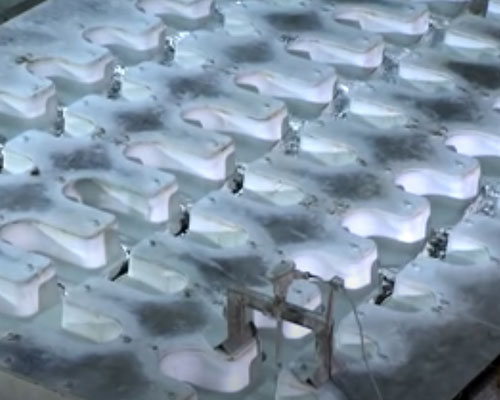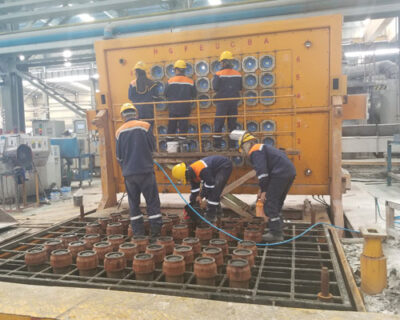Aluminium alloy is an alloy with aluminium as the main material. The alloy elements include copper, silicon, magnesium, zinc, etc. Aluminium alloy has the advantages of corrosion resistance, easy processing, high strength, and low density. Aluminium alloy has so many advantages, how it is processed into various aluminum alloy products. Nowadays, the aluminium extrusion process and aluminium casting process are the main process way for aluminium foundry. AdTech offers hot top casting products for foundry aluminium casting.
The aluminium extrusion process is that heat the aluminum alloy rod to about 400 ℃, and apply pressure to one end of the heated aluminum alloy rod in the extruder, and the other end is the corresponding shape of the mold. For alloy products, this process is like squeezing toothpaste. Different openings determine the shape of the toothpaste. The extruded aluminum alloy products are mainly used as building profiles.

Aluminium Casting Process
The aluminium die casting process is that press the aluminum alloy solution into the mold cavity and make a casting. The aluminum alloy solution is first put into the press chamber, then the injection punch advances, and the aluminum alloy melt enters into the cavity.
After the aluminum alloy melt is solidified, then open die-casting mold and take out the casting. The die-cast aluminum alloy product has high precision and good quality, and is mainly used for parts on cars, airplanes, and ships.
Although aluminum alloy has good oxidation resistance, in order to better reflect product quality, enhance use and visual effects. Aluminum alloy will also do various surface treatments, mainly including polishing, wire drawing, electroplating, sandblasting, etc. In order to further improve the decorative and protective properties of the alloy.
Today, people are increasingly demanding low-carbon environmental protection, aluminum alloy has become a substitute for many metals. Its low density, high strength, easy processing and other advantages, more and more applications in automobiles, high-speed rail, aviation, ships, and other fields.

